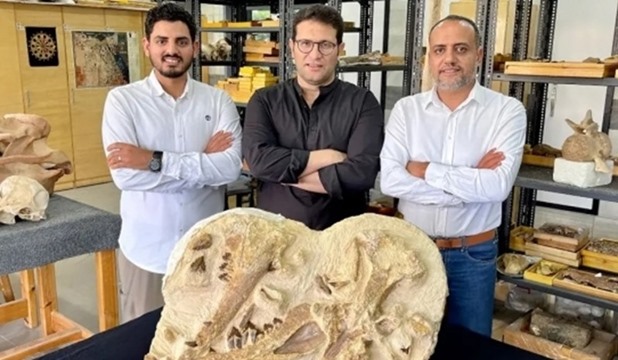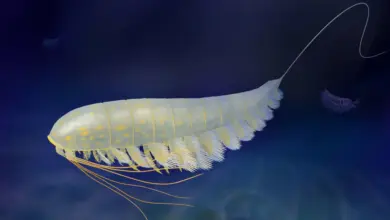
President of Mansoura University Sherif Khater announced that a team of the university researchers unearthed a fossil of a pint-size whale that lived around 41m years ago, in a new scientific achievement in the field of palaeology.
In a statement, Mansoura University said the researchers unearthed the fossils near Wadi al-Hitan in Egypt, a site where many fossils of ancient whales can be found. At first, they said, it was unclear what they had found.
Prof. Hesham Sallam, founder of the Mansoura University vertebrate palaeontology center (MUVP), said the team initially found a single exposed tooth in a block of limestone that dated back to the Eocene, a period that lasted from about 55.8m to 33.9m years ago.
“Then when we were trying to repair it and clean up all of the sediment above the fossils, we discovered it is not something we usually see from that time period,” he said.
The whale has been named Tutcetus rayanensis, after the Egyptian pharaoh Tutankhamun, commemorating the discovery of the pharaoh’s tomb a century ago and the Wadi al-Rayan area in Egypt where the fossil was found.
According to Sallam’s team, the creature is a type of whale known as a basilosaurid – an extinct group thought to be the first whales to live solely in the water, unlike other early whales that also ventured on to land.
The team estimated the tiny whale weighed 187kg (400lb), and was about 2.5 meters (8ft) long, making it the smallest member of the basilosauridae, which usually measure between 4 meters and 20 meters long.
The researchers said an analysis of the soft enamel of the whale’s teeth revealed it would have fed on small squids and maybe crustaceans.




